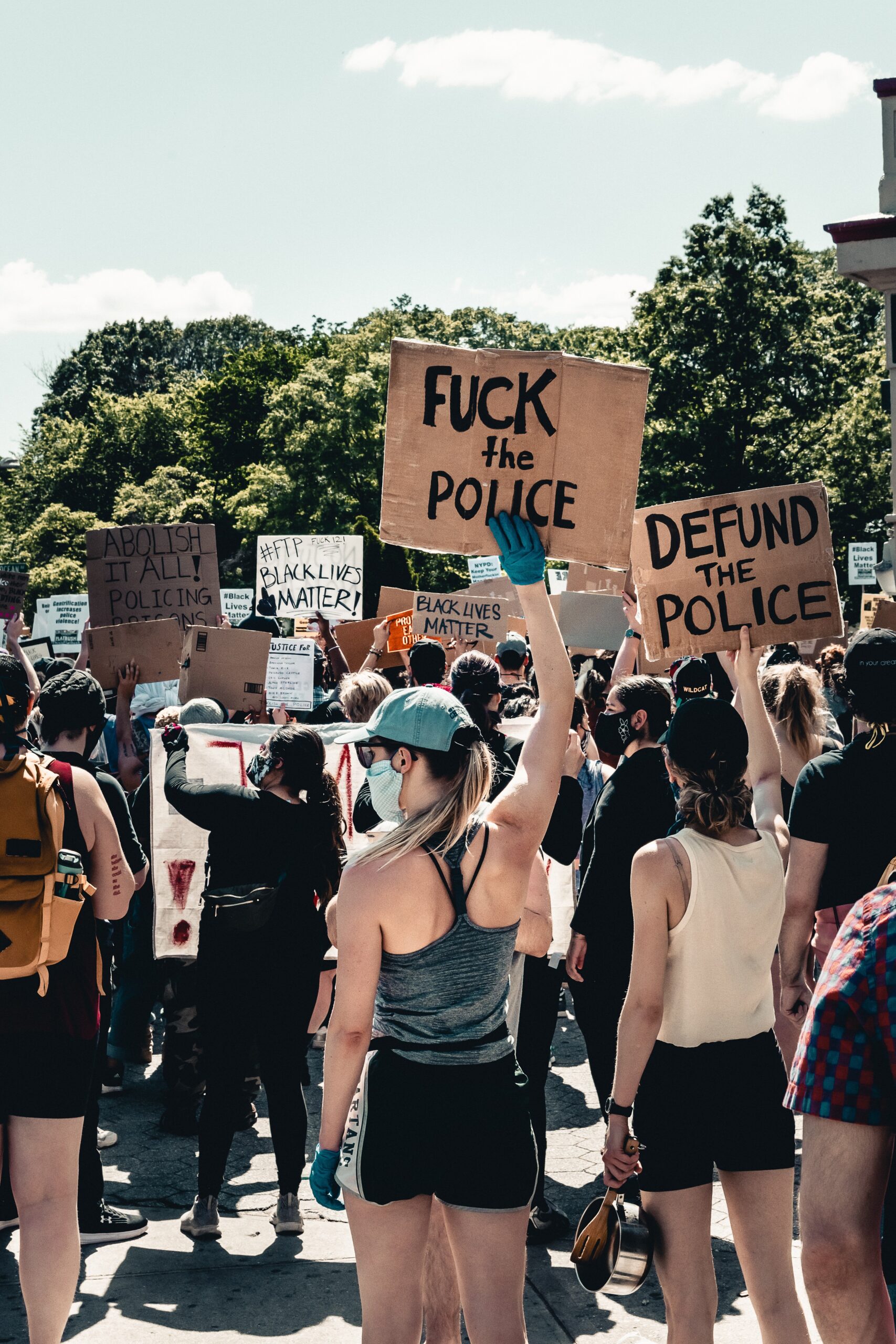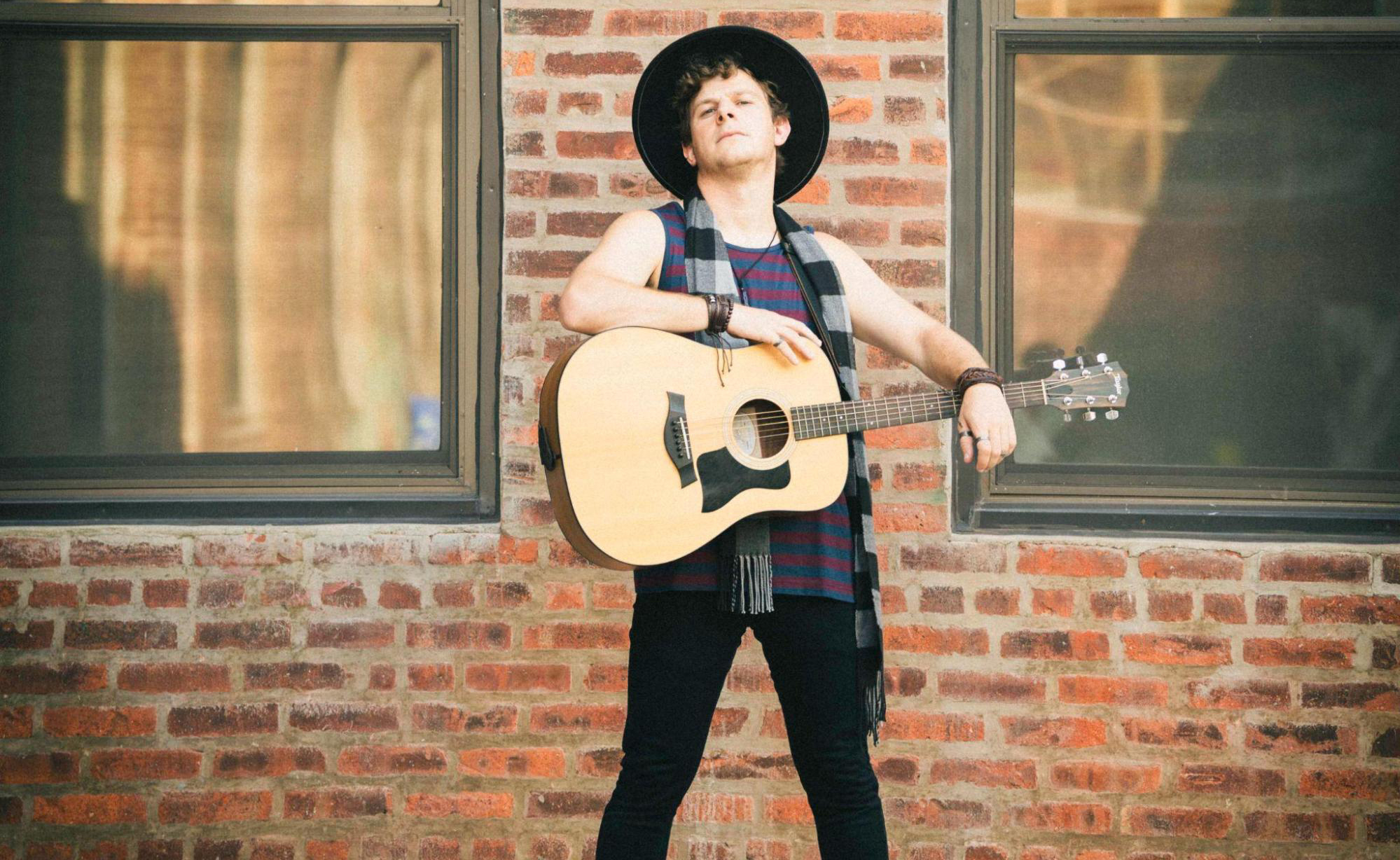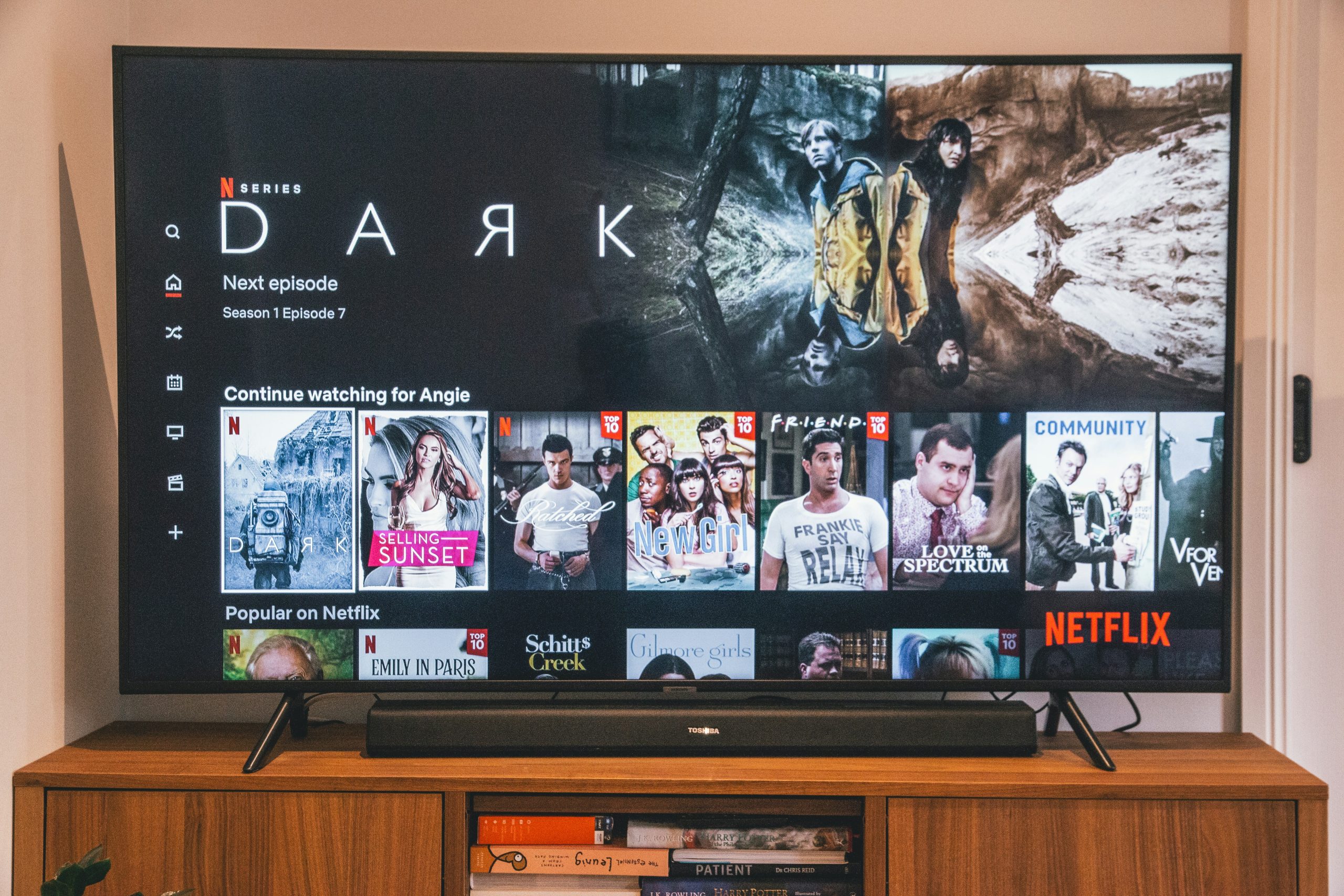CULTURE
Copaganda: With “Cops” and “Live PD” Canceled, Is It Still Okay to Love “Law & Order”?
12 Jun, 20

Defund the Police
Photo by Erick Zajac (Unsplash)
Amid ongoing protests against police brutality, the prominence of pro-police propaganda or “copaganda” has recently come under increasing scrutiny.
Copaganda is often called out in Internet posts that often follow closely on the heels of highly publicized police shootings or instances of brutality. Generally these posts consist of cute pictures of police dogs or videos of police officers playing basketball, dancing, or interacting with their communities in fun, positive ways.
More recent iterations of copaganda have included posts of police kneeling or marching with protesters in the demonstrations that have followed the brutal killing of George Floyd. These displays of solidarity, compassion, and friendliness are meant to humanize the figures who have become so associated with monstrous acts of violent, frequently racialized dehumanization—like what happened to George Floyd on May 25th, when officer Derek Chauvin spent more than eight minutes slowly crushing his windpipe until he was calling out for his dead mother…
Copaganda presents a much more pleasant view of reality—it’s certainly easier to watch than images of police brutality. But what these snapshots and clips can’t show you is how many complaints the officers involved have garnered for excessive force or racial profiling—in many places those records are sealed. They don’t let you know whether that kneeling or marching cop went on to “disperse” peaceful protesters with tear gas, pepper spray, rubber bullets, and a swinging baton as soon as curfew rolled around.
Cops and Live PD: Police “Reality” Shows
These posts are probably most blatant version of copaganda, and they’re fodder for TV news—that almost always seeks to put a positive on police activity—but they’re far from the only kind in our culture. Cops and Live PD, which make entertainment out of (wildly incomplete and cherry-picked moments of) police work were clear extensions of the same idea before both shows were canceled within the last week.
By showing the craziest, most intoxicated people that the police have to deal with—and none of the police’s use of excessive force, because they were on their best behavior (and if they slipped up, then it didn’t make it on TV)—these shows presented their viewers with a sanitized version of policing, naturally compelling the audience to relate to the calm, functional people “just trying to do their jobs.”
Worse still, Cops and Live PD incentivized police to make good TV, harassing addicts and others they could count on for entertainment value and—in the case of COPS—participating in intimidation tactics in order to get suspects to sign TV appearance waivers (Live PD didn’t have this issue, because the “live” schtick removed the need to use waivers at all).
Again, these shows represented a fairly straightforward version of copaganda involving real cops (seemingly) doing their jobs well. But there is a sense in which every TV show and movie that frames police as the good guys functions as a more subtle and insidious form of thought control.
Fictional Good Cops
CSI, for example, has primed most of us to believe that anything presented as “forensic evidence” is air-tight, despite the completely unscientific way many forensic techniques were developed—methods for analyzing bite marks, hair samples, and blood spatter are all composed largely of guesswork (and even fingerprint matching is substantially hazier than we’ve been led to believe). In fact, according to the Innocence Project, bad or misused forensic evidence is involved in about 45% of wrongful convictions.
Even shows likeBrooklyn Nine-Nine, where the police are presented as hapless goofballs, or Paw Patrol, which includes a friendly cartoon police dog (…) have come under fire for glorifying the police. But perhaps the worst offender—by virtue of sheer volume—is the show whose name is roughly synonymous with efforts to restrict freedom, oppress populations, and reinforce existing power structures: Law & Order.
While it’s doubtful that President Trump was deliberately invoking the beloved franchise when he recently referred to himself as “your law and order president,” the phrase has certainly benefited from its association with more than 1,000 hours of procedural copaganda across three decades and four spin-off series.
Even Ice-T of Law & Order: SVU (who wrote a song called “Killers” about the police and another song called “Cop Killer” glorifying violence against the police…) has acknowledged that the series—while trying to be fair—does tend to romanticize police work.
And while the Dick Wolf brand is most readily identified by a sick baseline, cool guitar riffs and that signature DUN DUN sound effect, the copaganda is baked right into the voiceover in the Law & Order intro: “In the criminal justice system, the people are represented by two separate, yet equally important, groups: The police, who investigate crime; and the district attorneys, who prosecute the offenders. These are their stories.”
While the term “the people” is used in criminal cases to refer to the state or federal government enforcing its laws, Law & Order using it here with the claim that the police represent the people flies in the face of the imbalanced and toxic relationship that overpoliced communities have with law enforcement. In particular, Black and brown men are treated by police in most American cities not as “the people” to be represented but as potential threats to order and capital who need to be controlled, contained, and kept afraid of police violence.
Worse still is the use of the term “offenders” rather than “defendants” for the people whom district attorneys prosecute—erasing their presumption of innocence and their existence as members of “the people” who are entitled to their own (criminally underfunded) representation in the form of public defenders.
Law and Order Voice Intro DUN DUN HD Lyricswww.youtube.com
Sadly, even the assertion that police and district attorneys are separate is misleading given how closely the two work with one another to achieve convictions (often on faulty, misleading, or incomplete evidence). It’s that close relationship which also explains why killer cops are generally so difficult to prosecute.
The Problem with Procedurals
But the problems obviously go deeper than the intro. The basics of storytelling require these shows to misrepresent so much of police work and the justice system to make for better TV. For a start, the power dynamics between police and suspects are inverted to make police seem like the morally unimpeachable underdogs who have to fight bureaucracy every step of the way—rather than the people whose testimony and evidence the courts favor above all else. Lie detector tests, for instance, are always bemoaned as being inadmissible in a way that suggests that their inaccuracies are relatively minor—rather than gaping.
These misleading ideas pair well with the common portrayal of criminal defense attorneys as crooked, greedy opportunists who will cheat, lie, and weasel their clients out of trouble, and the way police hunches—while sometimes incorrect—almost always lead somewhere interesting and uncover hidden details or witness secrets. In reality, defense attorneys are usually badly outmatched by DAs, and police hunches regularly lead to wasted time and resources spent assembling flimsy evidence to support preconceived conclusions—all while neglecting other possibilities.
The misrepresentation of hunches gets at a further negative impact of this kind of copaganda. It not only makes members of the public and potential jurors more likely to trust cops’ instincts, but it has the potential to sway the cops themselves. When police are encouraged by shows like Law & Order to follow their “instincts” or “guts,” they will naturally end up being influenced by their implicit biases—the more subtle forms of bigotry—to consider potential suspects who match their preconceived notions of criminality.
Human Factors in Wrongful Convictions: Implicit Biaswww.youtube.com
In other words, in the context of the historic and economic conditions of the United States, they are more likely to consider black or brown men as likely culprits. Once they start pursuing those possibilities, they will be more likely to favor evidence that they can interpret as matching their hunch—thanks to confirmation bias. And the sunk cost effect means that once a hunch has been pursued, it’s increasingly difficult to redirect an investigation toward other suspects investigators may be ignoring—even if an unbiased accounting would say that the pursuit had produced nothing of substance (and even if there is evidence pointing in another direction).
Even Cops Believe the Copaganda
This is where things get truly dangerous. Let’s say there’s a little bit of questionable evidence tying a suspect to the scene of a crime, but not enough to get a search warrant. What should a good cop do? Far too often, what the good cops on TV do is bend the rules—plant a little evidence just to get that warrant, or find a way to do a little bit of digging without a warrant. Maybe it’s not the most ethical approach, but these are the good guys, and they’ve already figured out who the bad guy is, and they just need to get through all the red tape…
This is the toxic kind of thinking that leads to rampant police perjury to secure convictions. Often these lies are just used to pressure defendants into false confessions or plea deals (the vast majority of cases never go to court because of this kind of pressure). When cops’ jobs often depend on quotas and conviction rates, how could you not be tempted to take that route when it’s so much easier and a lifetime of police shows and movies have told you it’s the right thing to do?
Human Factors in wrongful convictions: False Confessionswww.youtube.com
Because, according to TV and movies, it’s the loose cannon cops who don’t always go by the book—they’re the ones who get things done… Translated into the real world, it turns out that “getting things done” means locking up a lot of innocent people.
To summarize, the Idealized version of policing and the criminal justice system presented in shows like Law & Order has the potential to stand in the way of meaningful reform. They encourage people who aren’t on the receiving end of overpolicing—and the cops themselves—to see the police as a benevolent force protecting society, hamstrung by bureaucratic regulations that only serve to let criminals to go free. From this perspective, why would we ever consider an option like defunding the police to replace much of their work with community services?
So while it is often both productive and necessary to enjoy and critically engage with problematic entertainment that provide a valuable form of escape while perpetuating offensive ideas… No, it’s not okay to still love Law & Order. It’s simplistic and outmoded, and The Wire is still the only good cop show.













